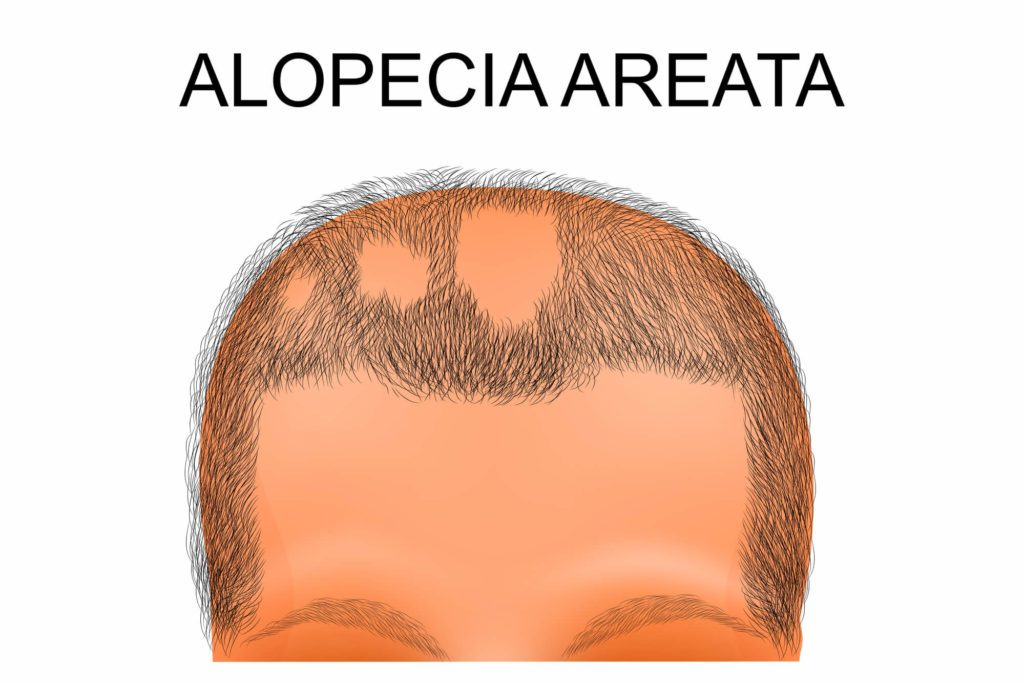What is Alopecia Areata?
Alopecia Areata is a common autoimmune condition which can end up in an unpredictable hair loss and effects 1-2% of the population in the UK, this can range from just a few patches about the size of a 10p piece and in some cases can be more extreme and lead to complete hair loss on the scalp.
It can affect any race, age group or gender although is common before the age of 30, although it is rare before 3 years of age.
1 in 5 people have a family member who has experienced the condition so there is some suggestion the disorder is hereditary.
Symptoms of Alopecia Areata
The symptoms of alopecia areata are commonly hair loss around the scalp, but there are several types of Alopecia Areata that you should be aware of:
- Alopecia Areata – this is patchy hair loss whereby you get one or more small round patches of hair loss on your scalp.
- Persistent patchy Alopecia Areata – this is patchy hair loss but the patchiness continues but doesn’t spread into worse forms of hair loss.
- Alopecia Totalis – This is hair loss across the entire head and is what Alopecia Areata can develop into.
- Alopecia Universalis – this is a worse form of Alopecia totalis as hair loss not only is present across the entire scalp, but it also moves onto the face.

What causes Alopecia Areata?
Alopecia Areata is an autoimmune disorder whereby the body attacks your hair follicles as it mistakes the healthy cells for viruses and bacteria. The specific cause as to why this happens is unknown but people who have autoimmune disorders are more vulnerable to alopecia areata.
How Alopecia Areata is diagnosed?
It can be difficult to diagnose Alopecia Areata as the main symptoms is hair loss and it can take different levels of extremity. Some doctors may recognise the balding signs and be able to diagnose based on the appearance of your hair. You may have to undertake blood tests and a scalp biopsy to determine whether there are any other conditions causing your hair loss.
Alopecia Areata Treatment
Those with alopecia areata may have just a few patches and can make a full recovery. The most common form of alopecia treatment is the use of steroid creams or a local injection of steroid. Unfortunately, there is no one cure fits all for alopecia areata but there are several treatment options and some work better for others, but it depends on the person.
Treatment needs to involve targeting the immune system and stimulating hair regrowth.
